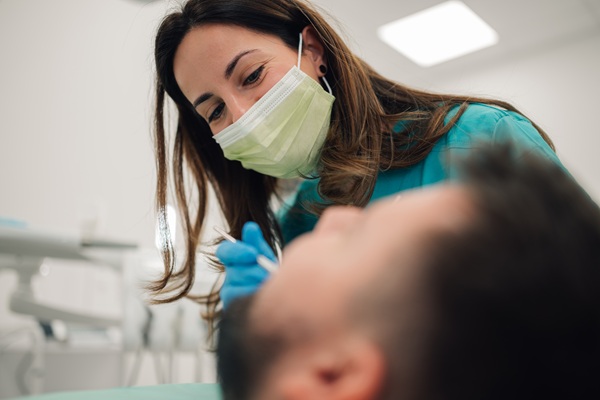Does Gum Disease Put the Entire Body at Risk?

Gum disease is a progressive condition that is caused by bacteria in the mouth getting into gum tissues. Your immune system responds to this invasion by sending off antibodies to fight off the invaders. The ensuing battle leads to inflammation and damage to the structures that support teeth.
How gum disease affects your overall health
The first stage of gum disease is called gingivitis, and it can be reversed with teeth cleanings and improved oral hygiene. The second stage is called periodontitis and it cannot be reversed. Dentists can help to manage issues caused by periodontal disease by performing appropriate treatments. The problems caused by periodontal disease are not restricted to the mouth. The bacteria that cause the condition have been linked to other issues like:
1. Heart disease
Poor oral hygiene and gum disease increase a person’s risk of developing heart disease. The bacteria that infect gum tissues and lead to inflammation can make their way into the bloodstream, leading to the buildup of plaque inside arteries. This increases the person’s risk of suffering a heart attack.
2. Dementia
Some of the chemicals that are released by gum tissues that have been invaded by bacteria can lead to the loss of brain cells and memory. Gum disease can lead to dementia when the type of bacteria that leads to gingivitis gets into the bloodstream or nerve channels.
3. Prostate issues
Men who have periodontal diseases have a higher risk of developing a condition called prostatitis. The condition can lead to difficulty ejaculating, a weak bladder and pain when urinating.
4. Respiratory issues
Bacteria in the mouth can be inhaled into the lungs, leading to respiratory issues like bronchitis, pneumonia and other respiratory infections. Getting gum disease under control can help to reduce this risk.
5. Erectile dysfunction
The bacteria that cause gum disease can lead to blood vessels becoming inflamed. This can hinder the flow of blood to the genitals, making it harder to get an erection.
Protecting yourself against gum disease
Good oral hygiene goes a long way when it comes to preventing gum disease. The condition occurs when oral bacteria in plaque or tartar make their way into gum tissues, infecting them. Plaque is a sticky film that forms on teeth surfaces after meals. It is made up of acids and bacteria, and it can be removed by brushing. However, when plaque is left on teeth surfaces for extended periods, it hardens into tartar which cannot be removed by brushing. Teeth cleaning is needed to get rid of plaque.
Dentists recommend brushing at least two times a day to prevent the build-up of plaque on teeth surfaces. Teeth should be flossed once daily, and an antibacterial mouthwash can help to kill off some of the bacteria that lead to gum disease.
Make oral health a priorty
Biannual trips to a dentist also go a long way when it comes to protecting against periodontal disease. Call or visit our Prescott clinic to set up an appointment with a dentist.
Request an appointment here: https://familydentistprescott.com or call Joseph A. Savoini D.M.D., P.C. at (928) 297-3040 for an appointment in our Prescott office.
Check out what others are saying about our dental services on Yelp: Gum Disease in Prescott, AZ.
Recent Posts
Most dental issues (predominantly tooth decay and gum disease) are caused by plaque, a sticky bacterial film. Continue reading to learn how tooth decay and gum disease are connected. This is why bacterial plaque is often the focus of rigorous at-home oral care regimens and regular dental exams.Plaque bacteria thrive by coexisting in areas where…
Red, inflamed or swollen gums are often the sign of gingivitis, the first stage of periodontal disease or worse still, periodontitis. Plaque is the most common cause of the condition, but there are several others that can cause gum infection.The following are some of the common ways to get gum disease:Gum disease is usually caused…
An oral cancer screening does not require any special preparation. However, preparation can help patients who are nervous about the visit or simply would like to know more about what to expect and how they can get the most out of the visit. This review offers insights into how you can prepare for an oral…
Thinking about getting an oral cancer sceening? Oral cancer screenings are a very important part of general dental care as they ensure the health of patient's oral cavity. They involve a few steps that are typically painless. Understanding the process of an oral cancer screening can be helpful for patients who are not sure what…


